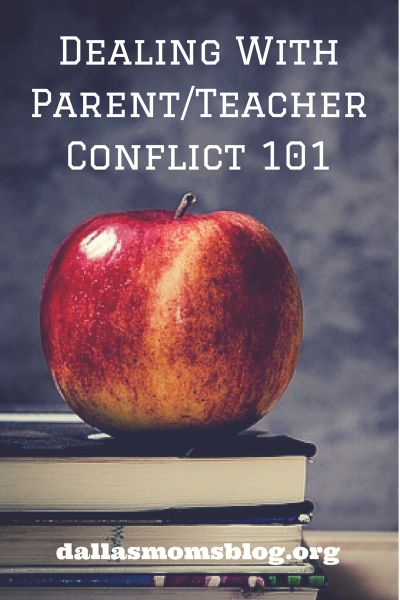It’s going to happen at some point. It might happen as early as preschool, or it might surface in elementary school, but one day you will disagree with something your child’s teacher does or says. Sometimes what the teacher has said or done isn’t exactly wrong, it’s just different from what you would prefer. Other times the teacher may say or do something flat out dangerous or inappropriate. When an issue arises between you and your child’s teacher, it can be very uncomfortable and frustrating. I’ve been on BOTH sides of the table as an elementary and preschool teacher AND a parent, and have found these steps to be indispensable for solving problems.
Get your “Mama Bear” instincts out with your spouse or friend, not the teacher.
It’s normal to rage and rant over an injustice toward your child. Go ahead and let it out! But don’t go into freak-out crazy mode with the teacher because (a.) it makes it difficult to continue in a positive relationship moving forward, (b.) it probably won’t get you the result you are wanting, and (c.) teachers won’t admit that your irrational outburst affects their interactions with your child, but it does.
Always go to the teacher first, not over their head.
As tempting as it might be to call the principal, or better yet the superintendent of schools, we all know that it’s not right to go above someone’s head without making an effort to talk to them first. It might eventually become necessary, but it’s not the first step. The exceptions to this rule are when the offender is a substitute teacher or an employee you have no idea how to contact. (That time the substitute in my daughter’s 5th grade class was telling the students about jail sex…yeah, that was a time I called the principal.)
Keep in mind that the information your child related to you might not be complete or even entirely accurate.
Children sometimes draw incorrect conclusions, or don’t have all the information needed to make sense of a situation. (And it’s even possible for kids to -GASP- deliberately lie!) I like to start conversations with a retelling of my child’s experience then ask the teacher if they were aware this happened. I also ask if they have additional information or a different perspective to share.
Communicate in a non-threatening way that conveys a desire for teamwork and understanding between you and the teacher to address the issue.
Accusations and criticism cause defensiveness, anger, and shutting down. Instead of attacking the teacher, talk about your concerns and invite the teacher to help you brainstorm possible solutions. At the beginning of this school year my son’s teacher did not allow snacks even though lunch wasn’t until 12:50. When several parents communicated their concerns about their kids feeling hungry, she reevaluated that stance and decided to allow children to bring a healthy snack. No one got mad or made demands. Simple communication opened the door for considering new ways of doing things.
Be gracious. Everybody makes mistakes sometimes.
A couple of years ago, I set out child safe scissors at a center in my preschool classroom. Whenever I do that I keep a close watch on the kids to make sure they don’t misuse them. One boy had been enjoying those scissors for a solid 10 minutes and using them exactly as intended to cut the paper strips. Because he was doing so well, I let down my guard a little and didn’t glance his way as often as I should. A couple of minutes passed, and when I turned to check on him I saw he had cut a dozen slits in his shirt. I didn’t even know child safe scissors could DO that! I was mortified. I had obviously made a very big mistake, and I felt terrible. I was dreading explaining it all to his mom, but when I did she was so gracious. I will never forget that day. Obviously I learned an important lesson about using scissors in the classroom. But I also learned a big lesson in forgiveness that guides me when my children’s teachers make mistakes.
But also be firm in expecting solid, professional behavior from teachers.
If I left super sharp adult scissors lying around my classroom without a single care as to how kids would use them it would be different from what I described above. Life always has a slight element of risk and judgement calls even when we are being cautious. We understand that well as moms, and can expect that teachers will sometimes be less than perfect. But we can also see when someone has a blatant disrespect for safety or decency. It’s our job as parents to be the advocate for our children. When my daughter had an emergency but was denied bathroom access by the cafeteria monitor, I spoke up on her behalf. Because I laid out my concerns in a rational “let’s find a solution for this” way, new policies were adopted to make sure that doesn’t happen again.
Have you had a situation arise with your child’s teacher you weren’t sure how to handle?
What ways did you respond to get a positive outcome?














